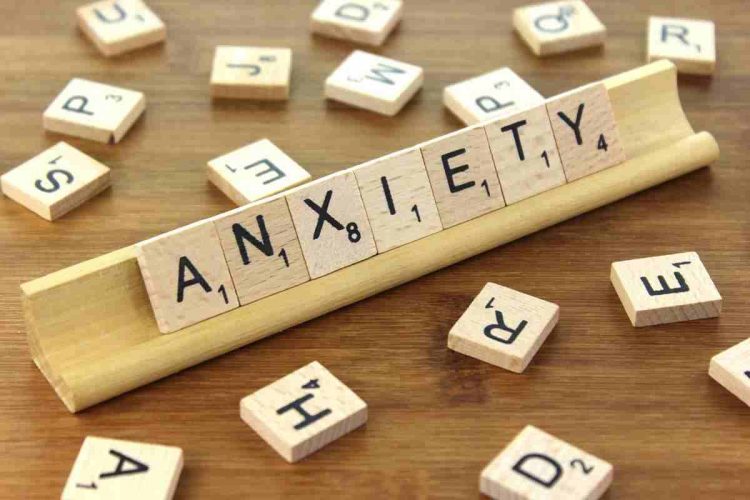According to the World Health Organisation, about 284 million individuals worldwide suffer from anxiety and here are five simple ways to overcome an anxiety attack.
What is anxiety?
Anxiety is a heightened feeling of nervousness. Normally, anxiousness can be brought on by something that has not happened. According to Anxiety.Org, this is because the mind is always seeking to be alert and aware to keep us safe.
Everyone experiences anxiety in different ways. Some people have general anxiety that is manageable but never goes away. Others suffer from extreme cases. According to CalmClinic, a really bad anxiety attack could actually lead to fainting or losing consciousness for a short period of time.
Signs and symptoms of an anxiety attack:
There are both psychological and physical symptoms of an anxiety attack:
- Rapid heartbeat
- Excessive trembling and sweating
- Nausea and dizziness
- Chest pain and headaches
- Weak limbs and tense muscles
According to CalmClinic, there are even less common physical symptoms like rashes, leg pain, and a feeling of suffocation.
Different types of anxiety disorders:
Generalized Anxiety Disorder (GAD)
General anxiety is the most common type of anxiety, it has affected over 10 million people according to CalmClinic. This type of anxiety does not have a specific trigger.
This can affect you either mentally or physically. GAD normally causes problems such as insomnia, irritation and fear of not having control.
Post-Traumatic Stress Disorder (PTSD)
This anxiety disorder is deeply rooted in traumatic events. We normally hear of soldiers who experience this after going to war because of the dead people they saw and tried to save.
It is not always this intense with everyone. With some, it could be a case of having parents going through a divorce that triggers an anxiety attack whenever they feel someone might abandon them. It is different with each person’s life path and journey; some are lucky to avoid it.
Obsessive-Compulsive Disorder (OCD)
This disorder can be very disturbing and causes very eerie feelings within the diagnosed. This is when something in the physical bothers you, things such as clothes not being in order, not having your lucky charm with you, or just wanting so many things to look and be a specific way. Like it says in the name, it causes you to become obsessive.
Phobias
These are very specific phobias, such as animals, objects, shapes and sizes. All of the diagnosed persons’ time goes into avoiding these fears. Other common fears under this are things such as snakes, spiders, drowning and blood.
Panic Disorder
This disorder is one that is not triggered by many things. It can often be triggered by stress or by nothing at all. This type of attack is mental and physical. Not only is your mind exaggerating situations but you also experience uncontrollable shaking, shivering and weak limbs.
Social Phobia/Social Anxiety
Social anxiety is very common in the newer generation and is often caused by the fear of being perceived and judged by people. This can be triggered by public speaking or socialising around figures of authority, and even strangers.
Social phobia can also lead to uncontrollable shaking and stuttering. Depending on the person, this can also lead to an intense mental breakdown.
Agoraphobia (a specific fear of certain places and situations)
This is a little similar to social anxiety. Agoraphobia is the fear of being outside in public or in unfamiliar spaces. People with agoraphobia might only feel comfortable going to places they are very familiar with, such as a local grocery store or a relative’s house.
The attacks are very similar to a panic attack. Although this type of anxiety is not one you find everywhere, it is still very serious.
What are the five ways to overcome an anxiety attack?
Medication
This is one way to treat anxiety attacks “quickly”. There are a number of places to receive medication and they are also sold over the counter at pharmacies but it is very important to know your type of anxiety so it can be treated accordingly.
Meditation
Meditation has proven time and time again that it helps with the calming of the mind and the body. One meditation session a day, gives one the ability to think clearly and to understand the root cause of situations. Anxiety is normally caused by all the scenarios and exaggerations that we make in our minds; meditation is a good tool to help with focus.
Therapy
It is also helpful to talk through what you’re thinking and feeling to an entrusted personnel or a therapist.
This can reduce the effects of anxiety. Also, by receiving feedback from your therapist the words tend to stick with you. When anxious, think back to what was said by your therapist and slowly come back to yourself. It is very important to find a therapist you feel most comfortable with and see the most progress with.
Self-care
Doing what you love and enjoy is the key to a number of benefits to ones’ wellbeing. Happiness helps with being more open to things at your own pace without feeling forced or closed into a box. Self care puts you in a relaxed state and can be achieved in number of ways, some examples would be; doing your skincare, yoga and exercises.
Journaling
Writing down your thoughts is very important. It is good to look back when in a different state and ask yourself questions about how big or small the situation was and whether it could have been handled differently. Whenever you’re in that situation again, it can be handled differently. This does not work immediately, and it takes a lot longer compared to the other methods.
It is very important to identify your type of anxiety and treat it as best as possible. Many people suffer from this and do not take the time to learn about it.






